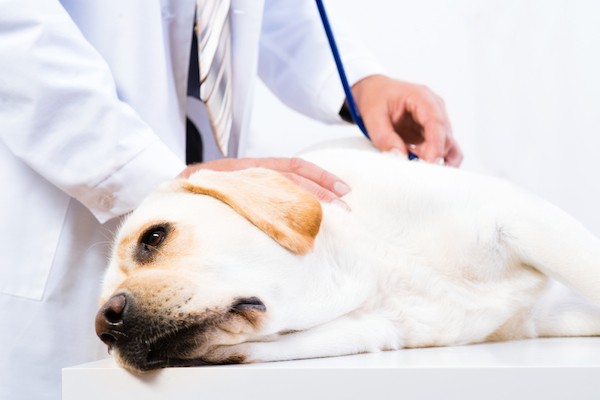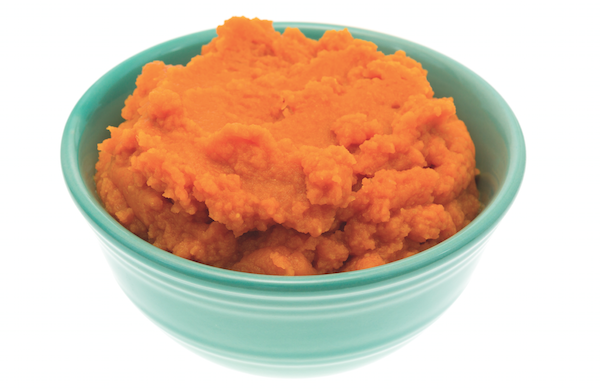What goes in must come out, but when it comes out of your dog as diarrhea, that’s an unpleasant situation. Trust me, I know. A few weeks after I adopted Chase, we had an incident that I still refer to as “The Great
Diarrhea Disaster of 2002.” Let’s just say that it took me 10 hours to clean and disinfect just about
every horizontal surface of my house, along with a few vertical surfaces.
Diarrhea is common in dogs and strikes for a variety of reasons. In Chase’s case, the likely culprit was stress related to a new environment.
“Intestines are the second largest organ in the body, so there’s a lot of potential for things to go wrong,” said Mark Stickney, D.V.M., clinical associate professor in the Department of Small Animal Clinical Sciences at the Texas A&M College of Veterinary Medicine and Biomedical Sciences in College Station.
If you have a dog, you’ll likely experience your own diarrhea disaster at some point. Here’s the straight poop to help you cope.
What is diarrhea?
“Diarrhea is simply excessive water in the stool,” Dr. Stickney said. “It can originate in the small or large intestine, also called the colon.”
It can be acute or chronic. Acutediarrhea typically results from a specific trigger and resolves on its own or with treatment within a few days, although some causes are life threatening. Chronic diarrhea does not resolve on its own or with symptomatic treatment. Both acute and chronic diarrhea can affect either the large or small intestine.
The scoop on large intestine diarrhea
If your dog races outside to relieve himself or experiences diarrhea in the house, then he’s suffering from diarrhea of the large intestine.
“The colon is the ‘storage house’ for fecal matter,” Dr. Stickney said. “When the colon is irritated, it can’t perform its job of holding in the fecal matter properly, resulting in extreme urgency to defecate.”
Mucus and/or fresh blood in the stool also indicate large intestinal diarrhea.
“The colon produces mucus, which provides lubrication and makes it easier to pass stool,” Dr. Stickney said. “An inflamed colon produces an excessive amount of mucus, which is then passed out with the stool.” Fresh blood might also be present due to irritation of the colon’s lining.

Vet examining dog by Shutterstock.
Diagnostic tests to check for causes of chronic large bowel diarrhea include a fecal exam to check for parasites or bacteria; blood work to check for issues, such as liver, kidney, or pancreatic disease; and
colonoscopy to check for IBD or cancer. Treatment of large intestinal diarrhea depends upon the underlying cause.
“In diet-responsive cases, adjusting fiber intake or reducing the amount of fat may be adequate to resolve the issue,” Dr. Stickney said.
The scoop on small intestine diarrhea
This type of diarrhea does not typically cause an urgent need to defecate and might be accompanied by gurgling noises emanating from your dog’s upper gastrointestinal tract. Melena, or black stools, might also be present, indicating bleeding in the upper GI tract. Diagnostic tests to determine the underlying cause are similar to those used for large intestine diarrhea. Small intestinal diarrhea is typically more complex to treat, as it may stem from a more serious underlying condition, according to Dr. Stickney.
Diarrhea do’s and don’ts
Follow these tips to help ensure diarrhea doesn’t get the best of your dog:
DO take puppies to the veterinarian immediately, as diarrhea might indicate parvovirus, especially if accompanied by vomiting or other signs of illness. “Puppies also don’t have the body reserves to handle electrolyte imbalances and fluid loss that accompany diarrhea,” Dr. Stickney said.
DON’T wait more than a few days to take your adult dog to the vet. “If your dog is vomiting, mopey, or otherwise not right, immediate attention is warranted,” Dr. Stickney said.
DO ask your veterinarian about a probiotic. “Dogs have very delicate bacterial environments in the gut, and adding a high-quality probiotic helps improve the balance in favor of the beneficial bacteria, which in turn helps with fecal quality,” Dr. Stickney said.
DO ask your veterinarian about giving extra fiber, such as that found in canned pumpkin, to add bulk to the stool. “Bear in mind that small intestinal diarrhea is not fiber-responsive,” Dr. Stickney said.

Pumpkin by Shutterstock.
When diarrhea hits, DON’T panic. With your veterinarian’s help, you and your dog can get through your diarrhea disaster and return to life as normal.
What’s behind the poop problem
Causes of acute diarrhea include:
- Abrupt change in diet
- Bacteria in the intestinal tract, such as Salmonella, E. coli, or Clostridium
- Dietary indiscretion
- Parasites, such as Giardia or whipworm
- Stress-related irritable bowel syndrome (IBS)
- Viral infections, such as parvovirus
Causes of chronic diarrhea include:
- Certain cancers, such as colorectal cancer
- Exocrine pancreatic insufficiency (EPI), which occurs when the exocrine portion of the pancreas fails to produce enough digestive enzymes to adequately break down dietary protein, fat, and carbohydrates
- Food intolerances
- High-fat diet
- Inflammatory bowel disorder (IBD)
Causes of large intestinal diarrhea include:
- Colorectal cancer
- EPI
- High-fat diet
- Insufficient fiber intake
- Parasites, such as Giardia and whipworm
- IBS/IBD
Causes of small intestine diarrhea include:
- Certain cancers, such as lymphosarcoma
- Food intolerance
- EPI
- IBD
The post Does Your Dog Have Diarrhea? Here’s What You Need to Know appeared first on Dogster.
No comments:
Post a Comment